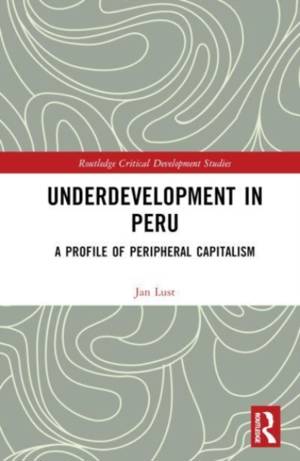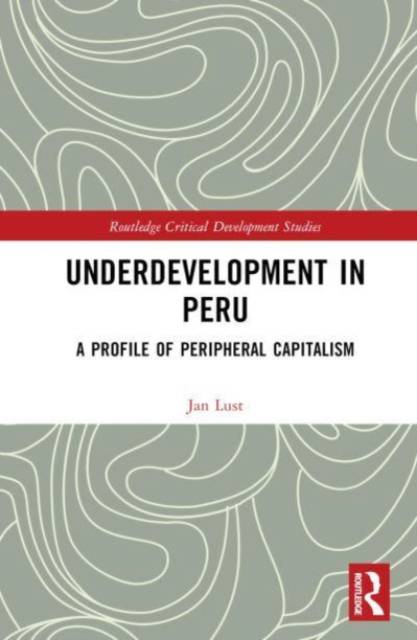
- Afhalen na 1 uur in een winkel met voorraad
- Gratis thuislevering in België vanaf € 30
- Ruim aanbod met 7 miljoen producten
- Afhalen na 1 uur in een winkel met voorraad
- Gratis thuislevering in België vanaf € 30
- Ruim aanbod met 7 miljoen producten
Omschrijving
At a time when Peru continues to reel from the impact of Covid-19 and the eruption of corruption scandals involving five former presidents, this book analyzes the persistence and the structural underpinnings of underdevelopment in Peru.
During the commodities boom of 2004-2011, Peru experienced strong levels of economic growth, bringing poverty down and increasing the middle-class population. In the Covid-19 pandemic, however, the severe lack of structural economic and social improvements has been exposed. With the arrival of the pandemic, hospitals collapsed, oxygen supplies dwindled, and informality rose, with dire consequences for the vulnerable, and for those already working on subsistence wages. Delving into the history of the country, Jan Lust outlines the structural problems that came about following Peru's post-colonial entrance into the world economy and the subsequent neoliberal extractive development model adopted in the 1990s. Only by understanding Peru's specific political, economic, and social conditions can a path towards development be found.
This book will be of interest to researchers working within politics, economics, critical development studies, and Latin American studies.
Specificaties
Betrokkenen
- Auteur(s):
- Uitgeverij:
Inhoud
- Aantal bladzijden:
- 220
- Taal:
- Engels
- Reeks:
Eigenschappen
- Productcode (EAN):
- 9781032266589
- Verschijningsdatum:
- 3/08/2023
- Uitvoering:
- Hardcover
- Formaat:
- Genaaid
- Afmetingen:
- 156 mm x 234 mm
- Gewicht:
- 512 g

Alleen bij Standaard Boekhandel
Beoordelingen
We publiceren alleen reviews die voldoen aan de voorwaarden voor reviews. Bekijk onze voorwaarden voor reviews.











